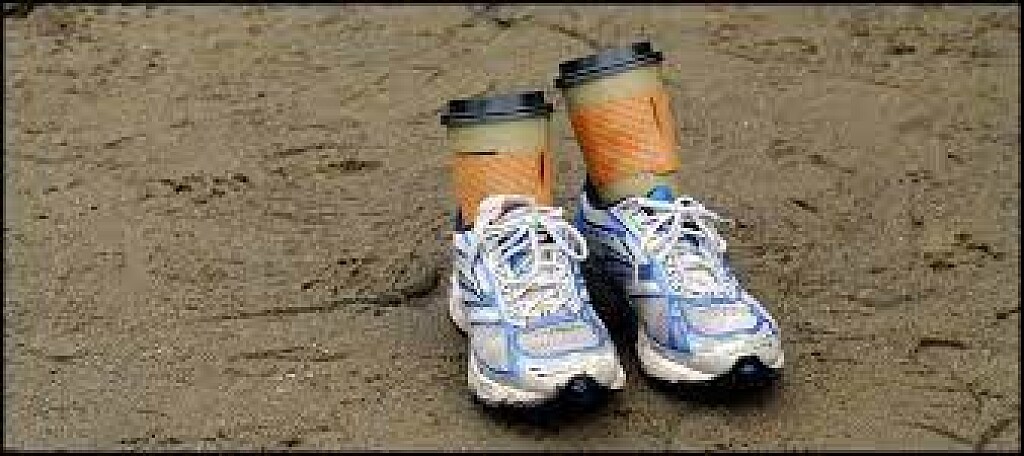Running News Daily
Running News Daily is edited by Bob Anderson. Send your news items to bob@mybestruns.com Advertising opportunities available. Train the Kenyan Way at KATA Kenya and Portugal owned and operated by Bob Anderson. Be sure to catch our movie A Long Run the movie KATA Running Camps and KATA Potato Farms - 31 now open in Kenya! https://kata.ke/
Index to Daily Posts · Sign Up For Updates · Run The World Feed
Caffeine Boosts Performance. But What About Coffee?
Researchers assess the potential benefits—and downsides—of the hundreds of bioactive compounds in your morning brew
A few years ago, researchers in Spain combed through the results of more than 7,000 urine samples tested for doping at competitions in various Olympic sports. Overall, 76 percent of the samples contained caffeine, with the highest concentrations found in cycling, track and field, and rowing. Frankly, I’m surprised that the number wasn’t higher, given how effective caffeine is as a performance booster and how widespread coffee consumption is more generally.

But I’m conflating two different things. Coffee, as a new review paper in the Journal of International Society of Sports Nutrition points out, is not just liquid caffeine. I’ve written many, many articles about research into caffeine’s performance-boosting powers, almost all of which uses pills to provide a carefully controlled dose of caffeine. In contrast, many of my running friends swear by their pre-workout or pre-race coffee. The new review, from a group of researchers led by Lonnie Lowery of Walsh University, asks whether coffee—“a complex matrix of hundreds of compounds”—provides the same athletic benefits as an equivalent dose of caffeine, or whether there are additional pros and cons. The short answer: it’s not clear.
You can make a reasonable argument that coffee is less effective than caffeine as a performance aid. The most obvious problem is that it’s hard to know exactly how much caffeine you’re getting in a cup of coffee. It depends on what kind of beans you’re using, how they’re prepared, how big your cup is, and so on. One study that tested a variety of store-bought espressos found caffeine levels ranging from 51 milligrams per serving at Starbucks to 322 milligrams per serving at Patisserie Francois.
Even if you stick with a consistent source of coffee with a known amount of caffeine, getting in the optimal performance-boosting dose might be a challenge. Sports scientists typically recommend taking between 3 and 6 milligrams per kilogram of bodyweight an hour before competition.
For a typical medium-roast coffee, that works out to two to four cups (16 to 32 ounces), depending on body size. That’s a lot of coffee—and caffeine from coffee appears to be absorbed more quickly than from capsules, which means you might want to finish downing all that liquid less than an hour before competition.
A further problem is that some of the other substances in coffee might interfere with the action of caffeine. The main source of that concern is a 1998 study that compared performance under five different conditions: water with placebo capsule, water with caffeine capsule, decaffeinated coffee, decaffeinated coffee with caffeine capsule, and regular coffee. In a half-hour running test, performance was only increased with water-with-caffeine-capsule trial. Since caffeine levels were identical in the coffee and the decaf-plus-caffeine-pill trials, that suggests that something in the coffee—perhaps chlorogenic acid, one of coffee’s key antioxidant compounds—was interfering with the performance boost of caffeine.
To be fair, subsequent research has mostly suggested that coffee works just as well as caffeine. This 2018 study, for example, found that coffee boosted one-mile run time by 1.9 percent compared to a placebo, and by 1.3 percent compared to decaffeinated coffee. Other studies have also found performance boosts from coffee, at least when taken in quantities that provide a known and sufficient dose of caffeine.
If anything, the results of that 2018 study raise the opposite question. Decaf was 0.6 percent faster than placebo. That wasn’t a statistically significant difference, but is it possible that coffee itself has performance benefits independent of its caffeine content?
The case in favor of coffee is based on all its other bioactive ingredients: most prominently polyphenols like chlorogenic acid that may influence blood flow and glucose levels, but also various minerals, melanoidins produced in the roasting process that have antioxidant and anti-inflammatory properties, and small amounts of carbohydrate, protein, and fat. The review takes an exhaustive dive into what these various substances might do for performance, listing their “neuromuscular, antioxidant, endocrine, cognitive, and metabolic effects,” but actual evidence of a performance boost is very thin on the ground.
To me, the strongest evidence that coffee might have some positive effects independent of caffeine comes from a different line of research. Back in 2018, I wrote about a study linking the effects of caffeine to a gene that affects caffeine metabolism. Roughly half the people in the study were fast caffeine metabolizers, and they got a big performance boost from caffeine in a 10K cycling trial. Most of the rest were medium metabolizers, and they got a negligible performance boost. The final 8 percent of subjects were slow metabolizers, and caffeine actually made them slower, perhaps because the positive effects of caffeine in the brain were outweighed by negative effects on blood circulation that persisted for longer.
This particular study used caffeine pills, but it emerged from an earlier line of research on the health effects of coffee. Big population-level studies have produced conflicting results about whether drinking lots of coffee is good or bad for you. University of Toronto researcher Ahmed El-Sohemy has suggested that this is because the effects depend on how you metabolize caffeine. He has shown, for example, that fast metabolizers have a lower risk of heart attack if they drink one to three cups of coffee a day, perhaps thanks to all those antioxidants and polyphenols and so on. Conversely, slow metabolizers have a 36 percent higher risk of heart attack if they drink two to three cups of coffee a day.
The implication here is that, at least for some aspects of long-term health, coffee is good for you but caffeine is bad for you. Fast caffeine metabolizers get the caffeine out of their system quickly, so the positive effects dominate. Slow metabolizers have the caffeine in their system for longer, so the negative effects take over. A key point: in a talk I saw earlier this year, El-Sohemy said that people’s subjective experience of how caffeine affects them is not a good predictor of whether they’re fast or slow metabolizers. (He does run a company that sells genetic testing of caffeine metabolism, so take that claim for what it’s worth.) My overall take, then, is that decaffeinated coffee probably has some good stuff in it, but there’s no convincing evidence that it will make you faster.
In the real world, the number one reason most of the athletes I know drink coffee before workouts and races is that it reliably makes them poop. That’s a discussion that Lowery’s review doesn’t get into, but it’s not insignificant for endurance athletes. If that’s your rationale, then by all means carry on. Drinking coffee is also a comforting and familiar routine for many people. But if you’re also hoping to harness the performance-boosting power of caffeine, then the main conclusion from the review is that you should take some time to figure out how much caffeine your favorite coffee contains, how much you usually drink, and decide whether you want to raise (or lower!) the dose, perhaps in combination with caffeine pills.
by Outside Online
Login to leave a comment




